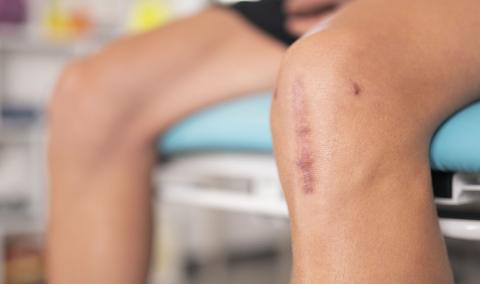Our orthopaedic experts use platelet-rich plasma (PRP) injections to relieve your joint pain without surgery.
PRP is made by concentrating the platelets in your blood and uses your own cells to support healing and reduce inflammation. These platelets contain more than 1,500 proteins that help repair damaged tissue.
At MU Health Care, we use PRP injections to treat soft tissue injuries and early arthritis. Your care team may recommend PRP as part of a personalized plan to reduce pain, support recovery and, in some cases, delay or avoid surgery.
Our Approach to PRP Treatment
PRP is one of several nonsurgical options we may recommend for managing joint or soft tissue pain — especially when symptoms haven’t improved with rest, therapy or medication.
This treatment uses a concentrated form of your own platelets to support healing in areas that typically recover slowly, such as ligaments, tendons or joint surfaces.
Depending on your condition and goals, PRP may be part of a personalized care plan to:
- Improve function and mobility
- Reduce inflammation in joints or soft tissues
- Relieve pain caused by overuse, injury or early arthritis
Conditions We Treat with PRP
We may include PRP in your treatment plan for:
- Early osteoarthritis (often in the knee or other joints)
- Muscle injuries and tears
- Plantar fasciitis
- Post-surgical repair
- Rotator cuff and meniscal injuries
- Shoulder injuries
- Sprains and minor fractures
- Tendinitis
- Tendon or ligament injuries
Am I a Candidate for PRP?
PRP may be an option if you:
- Are hoping to delay or avoid surgery for arthritis
- Have joint or soft tissue pain that hasn’t improved with rest, therapy or medication
- Have a tendon or ligament injury that’s healing slowly
- Want to support recovery after orthopaedic surgery
PRP is not right for everyone. We may not recommend it if you have advanced arthritis, an active infection, certain blood disorders or a history of some cancers.



























